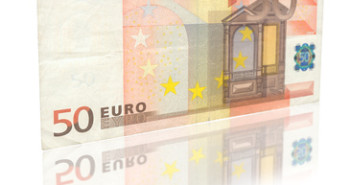 EUR/USD was lower after weak German data started the trading week on a sour note. German Ifo Business Climate continued its worrisome spiral, dropping to its lowest level in over two years. In Spain, the situation becomes more complicated as tensions between Catalonia and Spain rise. There is also uncertainty over whether Spain will ask for a full scale sovereign bailout, which is putting pressure on the euro.
EUR/USD was lower after weak German data started the trading week on a sour note. German Ifo Business Climate continued its worrisome spiral, dropping to its lowest level in over two years. In Spain, the situation becomes more complicated as tensions between Catalonia and Spain rise. There is also uncertainty over whether Spain will ask for a full scale sovereign bailout, which is putting pressure on the euro.
Here’s an update about technical lines, fundamental indicators and sentiment regarding EUR/USD.
EUR/USD Technical
- Asian session: Euro/dollar dropped to about 1.2940. The pair continues to drop in the European session, and is just above 1.29.
- Current range: 1.29 – 1.2960
Further levels in both directions:
- Below:Â 1.29, 1.2814, 1.2750, 1.2670, 1.2624, 1.2587, 1.2520 and 1.2460.
- Above: 1.2960, 1.30, 1.3060, 1.3105, 1.32, 1.3290, 1.34, 1.3437, 1.3480 and 1.3540.
- 1.2960 has reverted to resistance as the pair loses ground.
- 1.29 is providing weak support. 1.2814 is stronger.
Euro/Dollar down after weak German data, Spanish uncertainty – click on the graph to enlarge.
EUR/USD Fundamentals
-
8:00 German Ifo Business Climate. Exp. 102.6 points. Actual 101.4 points.
- 19:30 US FOMC member John Williams speaks.
For more events and lines, see the EUR/USD
EUR/USD Sentiment
- Spanish Woes Continue: Spain continues to be beset by severe political and economic troubles. Uncertainty over a bailout continues as the Spanish economy minister said the country would not rush to seek external financial aid. Perhaps the government is encouraged by the better market conditions, seen in the 10-year Spanish Bond Auction – that was very successful.Some analysts have suggested that PM Mariano Rajoy would prefer to push the official request until after October 21, due to internal calculations. The Catalan situation is worsening, after meeting between Rajoy and Catalan president Artur Mas ended in a total failure. Catalonia is now at crossroads, seeking information about the potential implications of a secession.
- Greece closer to deal?:  With the troika showing some flexibility over Greek repayments, there is hope for a quick conclusion of new measures, which will later require the approval of coalition partners. Talks about a third bailout program became more loud in recent days, as Greece is nowhere close to meeting targets. Media reports in Germany noted that Greece could be in the red for as much as 20 billion euros, almost twice the previous estimate. Although the reports were denied by the Greek Finance Ministry, such talk will do little to calm nervous investors.
- European recession looms: France saw a big plunge in its purchasing managers’ indices, and the Euro-zone releases remain unimpressive. All in all, the euro-zone is contracting at a very fast pace, and this is worrying. Germany, once the all-powerful locomotive in Europe, is also producing worrying numbers, as its economy looks more and more vulnerable to the malady gripping much of Europe. No less important, consumer and business confidence is weak. The markets received a rude reminder of that on Monday, as German Ifo Business Climate fell for a fifth consecutive month.
- Geopolitical tensions rising: In China, protests continued against Japanese targets, forcing the closure of Japanese factories and businesses. Souring relations between the world’s second and third largest economies could hurt the whole world. Tensions could rise in the UN General Assembly. The US is trying to calm tensions while standing behind Japan.
- QE3 effect waning off: After weeks of speculation, the Fed finally gave the nod to QE3. It launched an open ended program worth $40 billion dollars of monthly buys of MBS in order to help the housing sector, but also to encourage lending. This comes in addition to extending the low rates guidance to 2015 and continuing the existing Twist program worth $45 billion a month. This aggressive easing was later justified by Bernanke, who also said that the Fed is looking at the general picture of unemployment (including the participation rate). Yet after a week, the dollar is making fresh gains, and there is growing notion that a) the move was priced in, and b) the worsening global outlook will aid the greenback.
- US economy – up, down, or both?: The housing sector has gained steam recently, and Existing Home Sales looked sharp, posting a figure of 4.82 million. However, jobless claims remain at stubbornly high levels, and the improvement in the Philly Fed Index still left it in the red. With the US economy continuing to zigzag, it remains to be seen if investors stick with the safe-haven US dollar.



